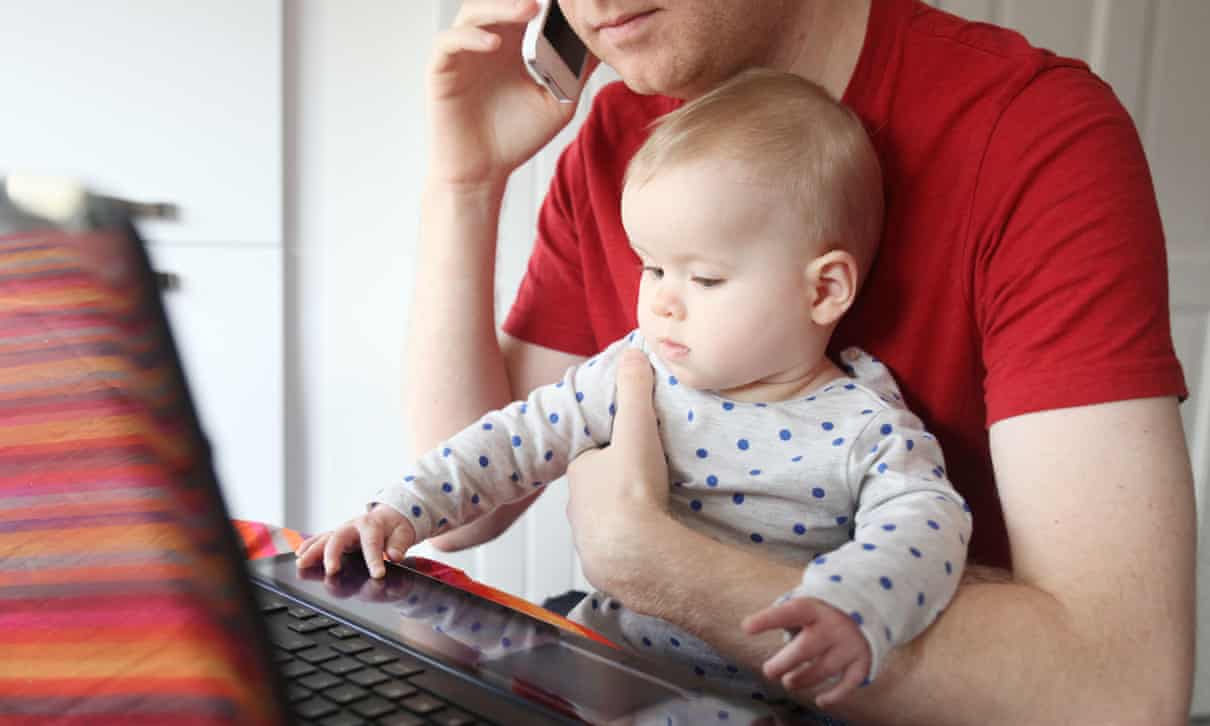
The other day I was in a Zoom meeting with colleagues I don't know that well.
The tone was serious and formal when suddenly everything changed. The door behind the man chairing the meeting burst open and his toddler ran in, jumped on his lap and smeared Vegemite all over his computer screen.It reminded me of the video that went viral in 2017. Prof Robert Kelly was being interviewed live by the BBC when his small daughter strutted into the room behind him. His toddler spotted the open door and followed his sister in with great delight. The clip ends with a frantic mother removing the kids.We may not be seeing each other at work these days but in some ways we're seeing a lot more of each other than we anticipated. That revelation is making me think that screens might be perversely better at connecting us than face-to-face workplace life.A postgraduate researcher, Rebecca Lellie, told me a wonderful story about why she decided to write her thesis on screen cultures. She was babysitting a seven-year-old girl whose 10- and 12-year-old brothers always hogged the TV. One night they disappeared upstairs and Rebecca told the little girl she had the big screen all to herself. The girl looked at her, picked up her iPad and said: "No thanks. I like it closer."Televisions are usually housed in a public part of the house. People come and go and observe what we are watching. Tablets and laptops allow us to wander into a private space and watch unobserved. As Rebecca observed in her research, they encourage a more intimate mode of viewing.I've been thinking about that seven-year-old girl in the endless Zoom meetings we've all been in. What does her comment tell us about our relationship to screens? What is the difference between being face-to-face and meeting in a virtual environment?One of the things virtual meetings do is put us all in each other's homes. We try to look professional from the waist up. But when that two-year-old bursts in the boundaries between the workplace and the domestic space collapse.It's a feminist shibboleth that women have historically borne the burden of being the keepers of the domestic domain. That we are the ones who have done most of the cleaning up, the cooking and the emotional labour. Just ask any woman who's gone to work with Weet-bix in her hair.These days, of course, many men do more of their share too. But until now a lot of the invisible labour that we all do at home was absent from the workplace.There has been a lot of lip service paid to flexible work practices. But the reality is that a lot of us are still obliged to do the commute and turn up to the office.Covid-19 has plunged us all into a gigantic experiment in working from home. We are physically disconnected but, perversely, we are more connected to our colleagues' lives. On the screen we are all seeing each other in close-up. We are framed by the stuff of our personal lives.Could the pandemic have an upside? Will we be better at balancing work and life?Feminist demands for flexible working hours and practices that are not built around the needs of the traditional male breadwinner have made little inroads in mainstream corporate culture. If anything, the online and mobile era has resulted in us being more tethered to work than ever before.What if it took a virus to reboot our workplace cultures and humanise them? To give our leaders and managers confidence that people can be trusted to deliver without having to put on suits and judged on what time they leave the office.Maybe it's time to reflect on what we have learned from the vast working-at-home experiment thrust upon us.We hear a lot about how screens disconnect us and separate us from "reality'" Yet I suspect many of us have found just the opposite by looking into each other's lounge rooms and bedrooms. Seeing children wandering in and out of the frame.I was in a virtual meeting the other day when a man who is famous for his relentlessly pragmatic demeanour paused and asked everyone to explain what was behind them. We talked about our paintings and photos and books and what they meant to us.That, I thought, right there is the glimmer of the breakthrough that women have been hoping for. A crack in the ceiling of corporate culture. Catharine Lumby is a professor of media studies at Macquarie University and the director of the Centre for Media History

0 comments:
Post a Comment